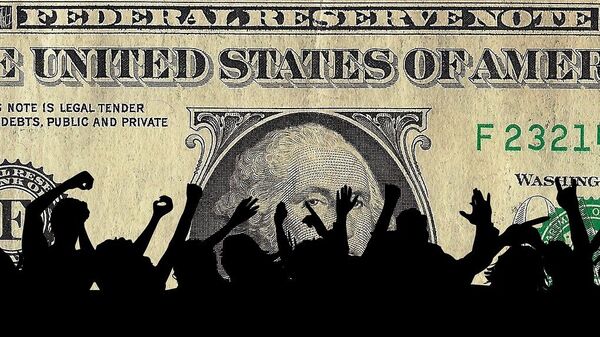The 8th Circuit Court of Appeals in St. Paul, Minnesota, cited the historied use of the phrase and argued that it was not coercive, i.e. that one needn't believe in God in order to use money.
Twenty-nine atheists, children of atheists and atheist advocacy organizations were suing over the use of the motto on bills and coins, arguing that its use was a violation of the Establishment Clause of the First Amendment to the US Constitution.
The Establishment Clause states, "Congress shall make no law respecting an establishment of religion, or prohibiting the free exercise thereof."
Circuit Judge Raymond Gruender, whom US President Donald Trump has previously floated as a potential Supreme Court nominee, argued that the government's use of the motto is a celebration of the US' "tradition of religious freedom" and that the phrase "comports with early understandings of the Establishment Clause."
The de facto national motto of the United States used to be "E pluribus unum" (out of many, one), appearing on official seals and currency since 1795. But during the Cold War, President Dwight Eisenhower wanted to push American religiosity as an antidote to Soviet communism. According to the 2007 book "Religion and the Law in America: An Encyclopedia of Personal Belief and Public Policy," the US changed the motto in 1956, "in large part to differentiate itself from the Soviet Union, its Cold War enemy that was widely seen as promoting atheism. The phrase ‘godless communists' was often used in describing the USSR."
"Little is more directly connected with the federal government than paper money," the book's author, Scott A. Merriman, wrote.
The lawyer for the plaintiffs in the case, Michael Newdow, who has unsuccessfully litigated on issues involving religious speech and the Establishment Clause in the past, called the decision "utterly revolting."
"The history of governmental denigration of a suspect class should trump [the] principle" that impartiality be the cornerstone for analyzing Establishment Clause cases, he told Reuters.





